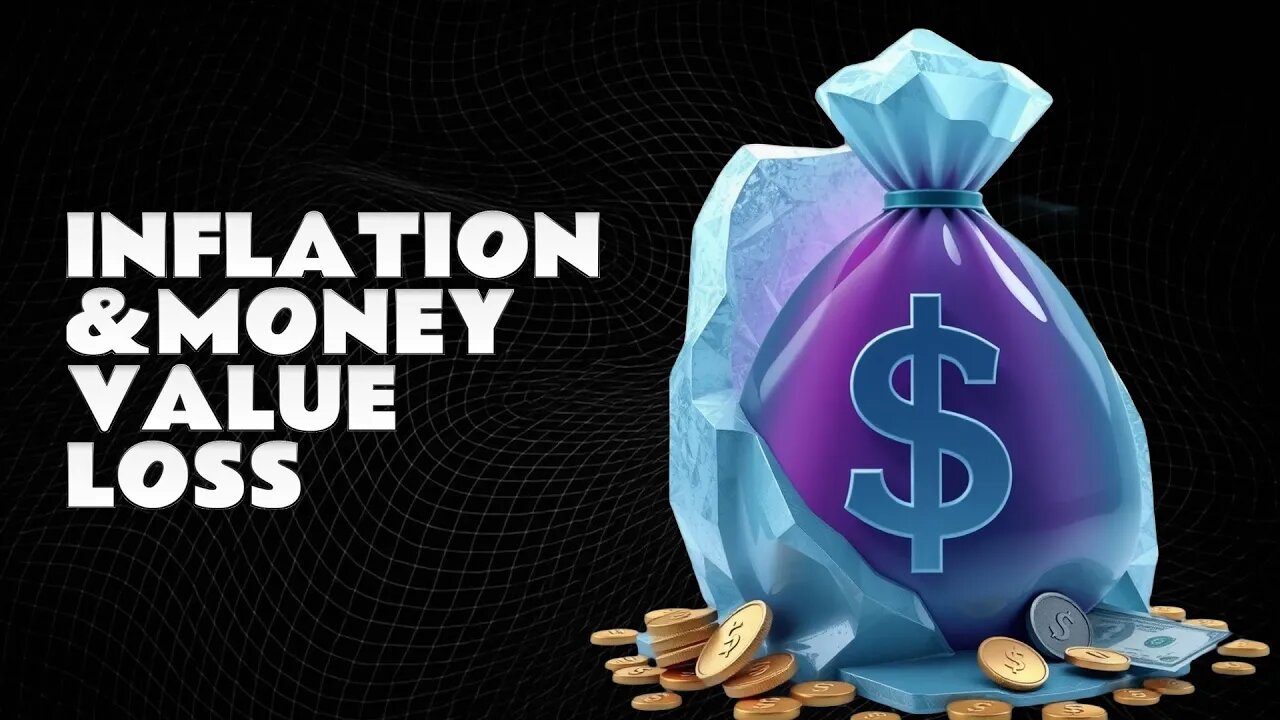Premium Only Content

Inflation Explained Simply: Why Your Money Loses Value
Inflation is a term often heard in economic discussions, but what does it really mean and why does it affect the value of your money? Simply put, inflation is the general increase in prices and fall in the purchasing value of money. When the cost of goods and services rises, each unit of currency (like a dollar) buys less than it did before. Understanding inflation is crucial for managing personal finances and comprehending broader economic trends.
At its core, inflation occurs when the demand for goods and services exceeds the supply. This can happen for various reasons, such as increased consumer spending, government deficits, or a rise in production costs. When there is more money chasing the same amount of goods, prices tend to rise. For example, if the money supply increases due to government stimulus packages or low-interest rates, more money is circulating, leading to higher prices.
There are different types of inflation, each impacting the economy differently. Moderate inflation, typically around 2-3% annually, is considered healthy as it encourages spending and investment. However, high inflation, often referred to as hyperinflation, can be detrimental, leading to economic instability and a significant decline in the value of money. Conversely, deflation, where prices decrease, can also be problematic as it discourages spending and investment.
Inflation affects individuals in several ways. For consumers, it means higher prices for everyday goods, reducing their purchasing power. For savers, it erodes the value of their savings over time. For example, if inflation is 3% annually, $100 saved today will only be worth about $97 in a year. For investors, inflation can impact returns on investments, making it essential to consider inflation-adjusted returns.
Governments and central banks use various tools to manage inflation. Monetary policy, which involves adjusting interest rates and controlling the money supply, is a primary method. When inflation is high, central banks may raise interest rates to reduce borrowing and spending, thereby cooling the economy. Conversely, during deflationary periods, they may lower interest rates to encourage spending and investment.
Understanding inflation helps in making informed financial decisions. By being aware of how inflation affects savings, investments, and everyday expenses, individuals can better plan for the future. For instance, investing in assets that tend to keep pace with inflation, such as real estate or inflation-protected bonds, can help preserve wealth.
In conclusion, inflation is a fundamental economic concept that impacts everyone. By grasping its causes and effects, individuals can navigate their financial decisions more effectively, ensuring their money retains its value over time.
-

Chad Prather
15 hours agoWhen God Delays: Trusting Jesus in the Waiting Room of Life
38.5K6 -
 2:00:39
2:00:39
The Chris Salcedo Show
14 hours ago $8.74 earnedThe Democrat's Schumer Shutdown
32.2K4 -
 30:32
30:32
Game On!
18 hours ago $3.73 earned20,000 Rumble Followers! Thursday Night Football 49ers vs Rams Preview!
40.2K4 -
 1:26
1:26
WildCreatures
14 days ago $4.13 earnedCow fearlessly grazes in crocodile-infested wetland
40.8K6 -
 29:54
29:54
DeVory Darkins
1 day ago $18.36 earnedHegseth drops explosive speech as Democrats painfully meltdown over Trump truth social post
92.6K82 -
 19:39
19:39
James Klüg
1 day agoAnti-Trump Protesters Threaten To Pepper Spray Me For Trying To Have Conversations
52.7K29 -
 34:54
34:54
MattMorseTV
16 hours ago $37.94 earned🔴Trump just FIRED 154,000 FEDERAL WORKERS. 🔴
98.5K133 -
 2:03:32
2:03:32
Side Scrollers Podcast
1 day agoMASSIVE Netflix Boycott + The TRUTH About Jimmy Kimmel’s Return + BIG Side Scrollers NEWS
60K20 -
 15:05
15:05
GritsGG
1 day agoFlawless Duos Victory w/ Most Winning Duo in Warzone History!
52.6K3 -
 1:53:52
1:53:52
FreshandFit
20 hours agoShe Was In 3 Domestic Violence Cases? Happy Birthday Fresh!!!
178K71